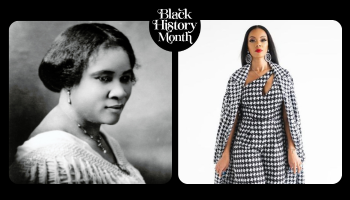VIA NEW YORK DAILY NEWS:
Civil rights leader Benjamin Hooks, who revitalized a faltering NAACP in the 1980s and spent a lifetime championing the nation’s minorities and needy, died Thursday morning.
Hooks, 85, passed away at his Nashville, Tenn., home following a long illness, said state Rep. Ulysses Jones.
While probably best known for his 15-year tenure atop the NAACP, Hooks broke down barriers and overcame bigotry long before leading the civil rights group.
In 1965, he became the first black judge in a southern trial court since Reconstruction, serving on the Tennessee Criminal Court.
Seven years later, Hooks was appointed as the first black commissioner of the Federal Communications Commission. Under his guidance, minority ownership and employment in broadcasting grew.
When Hooks ascended to his job as NAACP executive director in 1977, the group was $1 million in debt and its membership was down to 200,000 – less than half its total from a decade earlier.
He led the organization until 1992, restoring its membership and – more importantly – its influence. Hooks reached out to local NAACP chapters, using them to bolster awareness of the group.
In 2007, he was presented with the Presidential Medal of Freedom for his work in civil rights, one of the nation’s highest civilian honors.
“Dr. Hooks was a calm yet forceful voice for fairness, opportunity and personal responsibility,” President George W. Bush said in presenting the award.
Hooks’ lifelong devotion to the civil rights cause stemmed from his World War II experience guarding Italian prisoners of war.
The enemy was permitted to eat in “whites only” eateries that excluded black GIs. The humiliated Hooks vowed to fight racism once he returned to the U.S.
But when Hooks returned to his native Tennessee after the war, no southern law school would accept him. Undaunted, he used the GI Bill to land at DePaul University in Chicago and earned his degree there.
The newly-christened attorney opened his law office in Memphis, only to find his degree meant little on the local legal scene.
“At that time you were insulted by law clerks, excluded from white bar associations,” he once said in an interview with Jet magazine.
“And when I was in court, I was lucky to be called Ben. Usually it was just ‘boy.'”
Among Hooks’ other achievements were the creation of a program to increase job opportunities for black in major league baseball, and his program to foster corporate investment in black communities.
Rep. John Deberry, chairman of the Tennessee Black Caucus, said the death of Hooks was yet another loss among the leaders who led the struggle for equality.
“We are losing an incredible generation of men and women who changed the world,” Deberry said.














